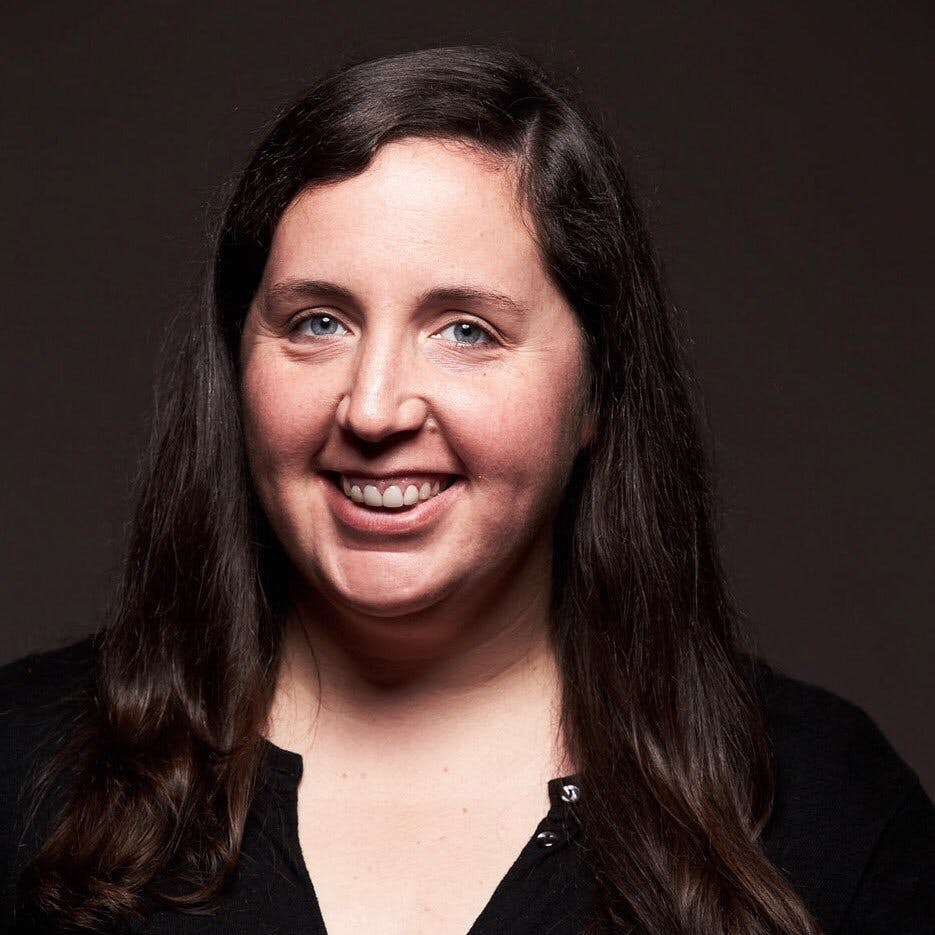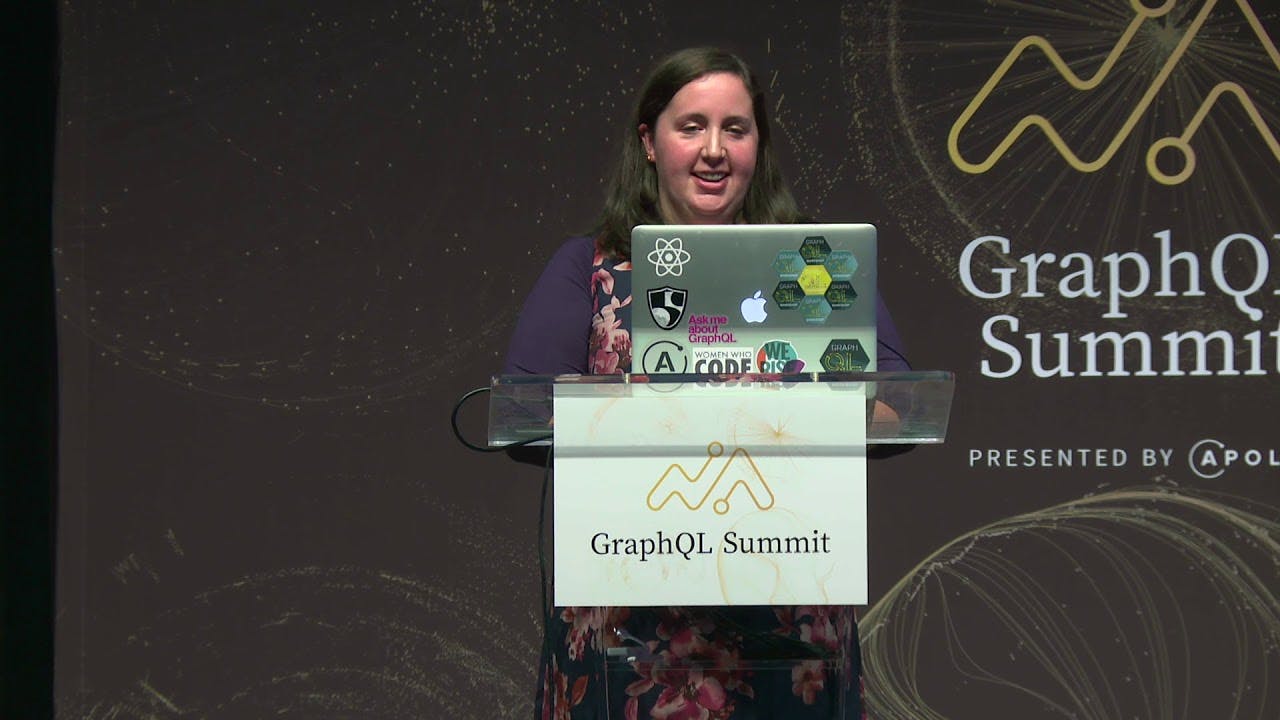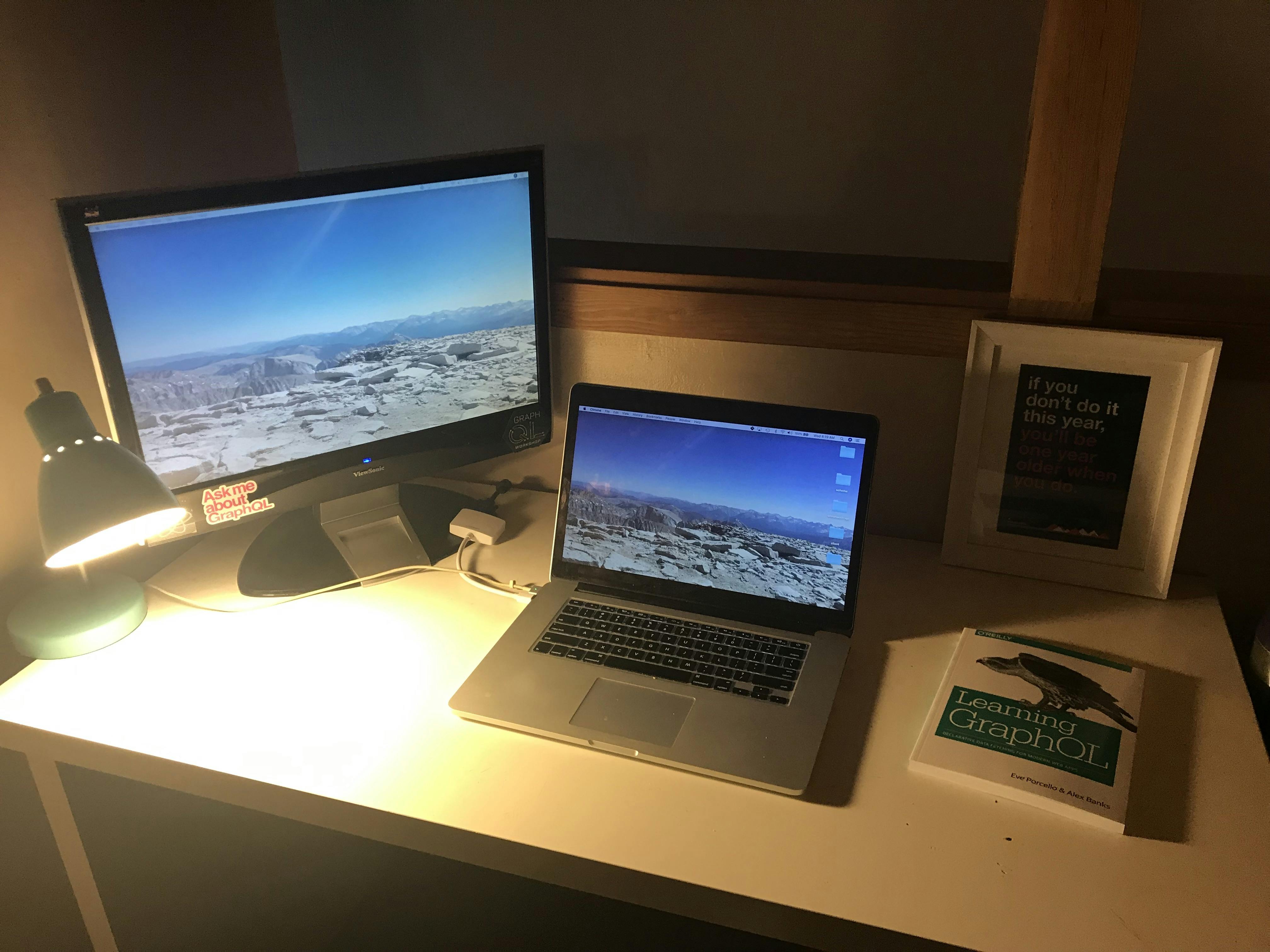Hey there 👋 thanks for taking out time to read this interview. I interview a leading women developer every week and showcase their opinion and advice on the tech. In case you missed our previous interviews, check out the "She Inspires" series on Hashnode.
This week, we are interviewing Eve Porcello. She is a software engineer, instructor, author, and co-founder of Moon Highway. She teaches JavaScript, React, and GraphQL on Moon Highway, Egghead, and LinkedIn. I hope you find this interview useful, please don't forget to share it.
Please tell us a little bit about yourself. How did you start coding?
 Source: Twitter ( @eveporcello )
Source: Twitter ( @eveporcello )
Before I got into coding, I didn't really know what I wanted to do. I was a project manager, a content manager, a UX Strategist - all jobs that were "in tech" but not programming. As a project manager, I worked with a lot of developers, and I wanted to learn more about coding. My husband, Alex Banks, is a programmer and was always trying to get me to be in a family business with him. Finally, because I wanted to speak the language of developers better and because I wanted to have more career opportunities, I learned HTML, CSS, and JavaScript.
Seven years ago, we started that family business, Moon Highway, and we create training materials for engineers in JavaScript, Node.js, React, and GraphQL.
What difficulties have you faced on your way in tech? Have you ever felt like you were not treated as equal?
Staying motivated when learning was a big obstacle for me. Finding the right learning materials and using them to advance my knowledge was not always easy.
While I have countless stories of not being treated as equal, it's important to acknowledge that my road into tech has been easier because Alex has always vouched for me as a competent engineer. He has used his privilege to create opportunities for me. I think that if you have gained any amount of privilege in this industry, it's important to reach back and pull other people up with you.
What do you think needs to be done to encourage beginner developers to learn programming languages and coding? Pursue a career in tech?
There are more resources than ever online to help people learn how to code, but just throwing people into the internet can be tricky. Trying to identify a learning path is really hard. I think that more programs like Free Code Camp that provide a linear learning path would help people out tremendously.
Finding a support system is really important too. I have enjoyed watching people's #100DaysofCode journeys on Twitter. It's a good way for people to support each other and to stay accountable when things get hard. I wish I had that when I was learning!
How did you start speaking at conferences? What do you like the most about being a keynote speaker?
 Source: Youtube (Teaching GraphQL (Eve Porcello))
Source: Youtube (Teaching GraphQL (Eve Porcello))
I was a little late to the conference game. The first conference I ever went to was O'Reilly's Fluent Conference because I was an O'Reilly author. I think that the best thing about being a speaker is that you get to meet people in-person and share ideas that you're excited about. I live in an area where there is a pretty small tech community, so it's a lot of fun to be in a room where everyone wants to talk tech.
Many conferences were called out for not having gender balance on their list of speakers. Why do you think this happens so frequently? What can we do about it?
I think it's great that people are calling out conferences for not having a diverse group of speakers. Having an all male lineup, an all white lineup, etc in 2019 is ridiculous. There are too many great speakers. Look at other conference lineups. Reach out to community groups. Post on Twitter. Do some work, and you'll find great speakers from a range of backgrounds.
Your main focus is teaching and you have co-authored books about React and GraphQL. What made you make a career switch and go from software development into software education? Also, can you tell us a bit more about your books and courses?
In all of my past jobs, I have found myself teaching. It's something I have always enjoyed doing. When we started our company, we were doing web consulting and then got into training because there was a lot of opportunity to teach JavaScript at companies in the Bay Area, about 3 hours from where we live.
Teaching is not our side hustle. Alex and I put a lot of effort into our course materials. We treat our materials like software, constantly iterating on them based on student feedback and technology changes. Our in-person courses are a mixture of lecture, samples (small code blocks to teach a concept), exercises (longer build-together activities), and labs. We want people to leave our classes confident that they can actually do something with the technology that we've focused on during the day. We want to empower people to build cool stuff and make complex topics accessible to anyone.
What advice would you give to aspiring programmers who look forward to working for big companies like Microsoft or Google?
I haven't worked for those companies directly, so I am probably not the right person to ask this one to!
What are your favorite programming tools? 📦
Create React App, GraphQL Playground, OneGraph, Netlify, Gatsby, Google, egghead.io.
What does your programming setup look like? Could you please share a photo? :)

This is my regular desk. Monitor, lamp, computer. A copy of Learning GraphQL to look up GraphQL things in the book I wrote. A Warren Miller framed quote that is about skiing but applicable to anything: "If you don't do it this year, you'll be one year older when you do."
We also have a recording booth for video recording with a bunch of microphones.
Why do you think bias towards women is still there, in the 21st century? What are some things people and organizations could do to change this?
Because in the 21st century, men are in charge of most industries. We could change this by hiring more women. Creating more opportunities for women. Paying women.
Thanks a lot for answering my questions, Eve. Finally, what would be your message to women trying to get into technology?
I'd say to find a community. Share your knowledge. Don't quit.
